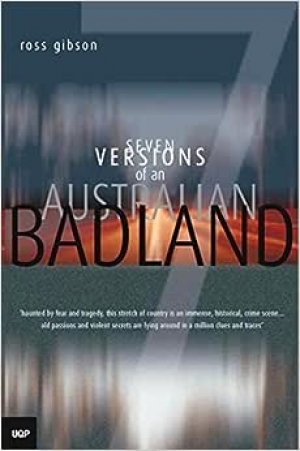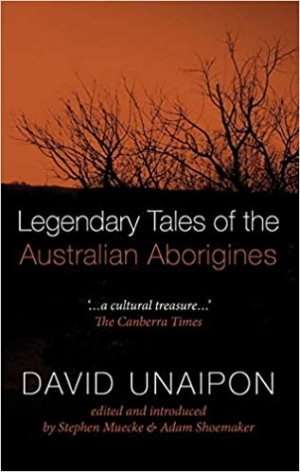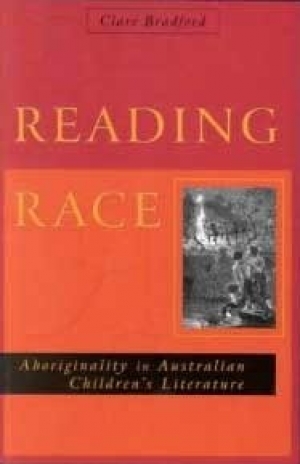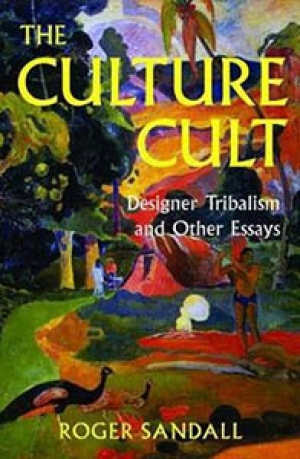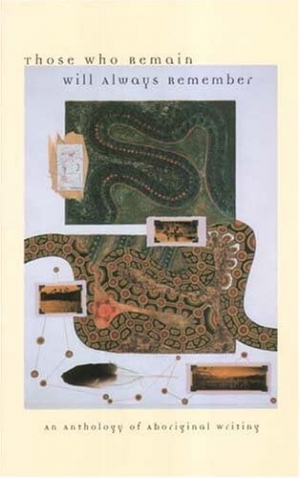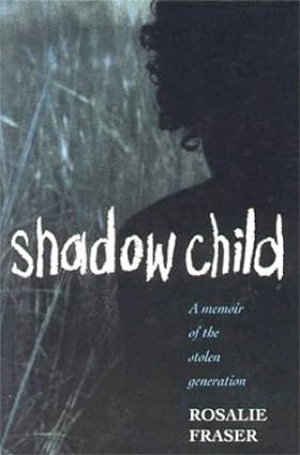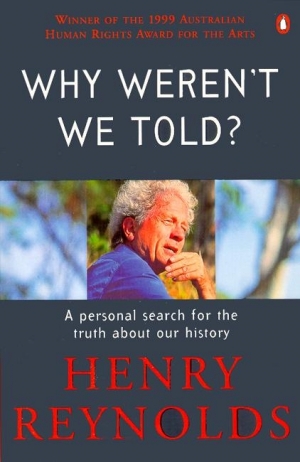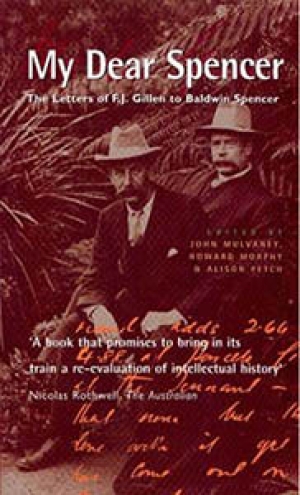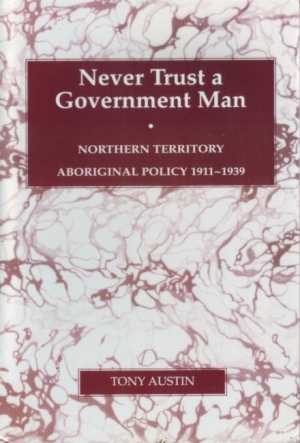Indigenous Studies
Lyndall Ryan reviews 'Seven Versions of An Australian Badland' by Ross Gibson, 'Looking For Blackfellas’ Point: An Australian History of Place' by Mark McKenna and 'Unearthed: The Aboriginal Tasmanians of Kangaroo Island' by Rebe Taylor
The idea of place as a metaphor of Australia’s colonial past and post-colonial present is a recent development in Australian history. The three books reviewed here come from a new generation of cultural historians who want to move the story of Australia from the national to the local. These cultural historians’ books reveal an intimacy with place and a new confidence in connecting the past to the present.
... (read more)Susan Hosking reviews 'Legendary Tales of the Australian Aborigines' by David Unaipon, edited and introduced by Stephen Muecke and Adam Shoemaker
Most of us are familiar with an image of David Unaipon, clean-shaven, neatly dressed, gazing steadily beyond the spatial dimensions of our $50 note. He wears a tie, and the collar of his shirt is evenly turned. Over his right shoulder is the little church at Raukkan; floating over his left are three of his inventions, including the shearing handpiece that no one would lend him the money to patent. And there is his signature, underneath the words: ‘As a full-blooded member of my race I think I may claim to be the first – but I hope, not the last – to produce an enduring record of our customs, beliefs and imaginings.’
... (read more)Clare Bradford is an Associate Professor in Literary and Communication Studies at Deakin University. She writes from within her discipline, and addresses other academics. Reading Race, despite its broad title, is principally a discussion of forms of racism that the author identifies in books published in colonial times, compared with contemporary examples.
... (read more)Patrick Wolfe reviews 'The Culture Cult: Designer tribalism and other essays' by Roger Sandall
There has been so much media hoopla about Roger Sandall’s The Culture Cult that its broad features are already well known. Sandall claims that a relativist mafia, whom he dubs the Culture Cult, holds unchallenged sway over contemporary anthropological discourse. As a result, academic anthropology is shot through with romantic primitivism, a bohemian vice that the cult inherits from Rousseau and Herder. Romantic primitivism is infatuated with difference, championing the irreducible idiosyncrasy of traditional cultures (the plural is emphatic) over the oppressive singularity of rational-progressive bourgeois Civilisation. In keeping with romantic-primitivist dictates, anthropology celebrates tradition over reason, stasis over development, gerontocracy over equality, the collective over the individual, and so on – the litany is a familiar one. As if this weren’t enough, romantic primitivism is also contagious. Anthropologists transmit it to their tribal objects of study, who fall over themselves to fit into the hidebound traditionalist cap that romantic primitivism has fashioned for them. Alarmingly for Sandall, this contagion can lead to land rights.
... (read more)Why the Impatience? Genocide, ‘Ideology’ and Practical Reconciliation
Querulous impatience has overtaken discussion of Aboriginal matters in some quarters. ‘If we apologise, they must forgive and then assimilate. Invite them to discussions about how to ameliorate their misery – the disintegration of community, the alcoholism, the glue sniffing. But they mustn’t talk “ideology”. We’ve had enough brooding over the past, heard enough about treaties and self-determination, and more than enough about genocide. It’s time to move on.’ That’s what I hear and in that tone.
... (read more)Philip Morrissey reviews 'Those Who Remain Will Always Remember: An anthology of Aboriginal writing' by Anne Brewster, Angeline O’Neill and Rosemary van den Berg (eds.)
Those Who Remain Will Always Remember is a fitting successor to Paperbark, the Muecke, Davis, Shoemaker, Mudrooroo anthology of a decade earlier. Though it is a regional publication, restricted to Aboriginal authors from Western Australia, it follows the same catholic principles of inclusion that made Paperbark a book of its time. Its editors Anne Brewster, Angeline O’Neill, and Rosemary van den Berg provide a kaleidoscopic image of Western Australian Aboriginal life in assembling writings which include critical essays, cultural-political statements, prose fiction, life histories, personal testimony, interviews, and poetry. Importantly, these disparate genres leave the reader with a sense of the editors’ unity of vision rather than ad hoc opportunism.
... (read more)Rosalie Fraser, a two-year-old Aboriginal child, is taken from her family by Child Welfare authorities and fostered with a distant relation of her non-Aboriginal father. She suffers years of abuse at the hands of her foster mother. Occasionally she runs away but her foster mother is always able to charm her into returning. She finally leaves for good when she meets a young man named Stan whom she later marries. In her mid-twenties a gynaecological operation which becomes unexpectedly complicated and painful causes flashbacks of the abuse she endured as a child and she realises she has to confront her past. She writes Shadow Child and in conclusion recommends writing as a therapy for anyone ‘who has problems to come to terms with’.
... (read more)In November 1998, the Governor General, Sir William Deane, found himself in the centre of a storm over the commemoration of Australia’s Aboriginal dead. Launching historian Ken Inglis’s Sacred Places: War Memorials in the Australian Landscape, Sir William remarked that in a country of more than 4,000 memorials there were none, at least of an official kind, to the Aborigines who had been slaughtered in the ‘Black Wars’ of the colonial period.
... (read more)Barry Hill reviews 'My Dear Spencer: The letters of F. J. Gillen to Baldwin Spencer' edited by John Mulvaney, Howard Morphy, and Alison Petch
When Baldwin Spencer, the eminent Professor of Biology at Melbourne University, arrived in Alice Springs in 1894 as a member of the Horn party, the first scientific expedition to Central Australia, he knew very little anthropology. Edward Stirling, South Australia’s Museum Director who would write their chapter on anthropology, was not much better off. The man who was in the know was the man on the ground: Frank Gillen, the local Telegraph Officer, Magistrate, and sub-Protector of Aborigines. A genial, curious, open-minded fellow of Irish Catholic faith, Gillen had been in the region for nearly twenty years.
... (read more)David English reviews 'Never Trust a Government Man: Northern Territory Aboriginal Policy' by Tony Austin and 'The Way We Civilise: Aboriginal Affairs' by Rosalind Kidd
Tony Austin and Rosalind Kidd are nonindigenous Australian scholars whose special contribution to the history of black-white relations in this country is to have researched the policy detail, culture, and interpersonal intricacies of the white bureaucracy that dealt with Aboriginal affairs in a large part of northern Australia. As each of them documents over and over again, the white males who exercised government power over indigenous Australians went to great lengths to avoid consulting those they governed or to include them in the decision-making process. The present books therefore do not claim to represent an Aboriginal point of view; their object of study is white policy and malpractice. Never Trust a Government Man and The Way We Civilise are each the outcome of archival research using government departmental documents, beginning at roughly the same period – from the time early this century – that a newly created Australian Federal Government first began to face its responsibilities towards indigenous people.
... (read more)
